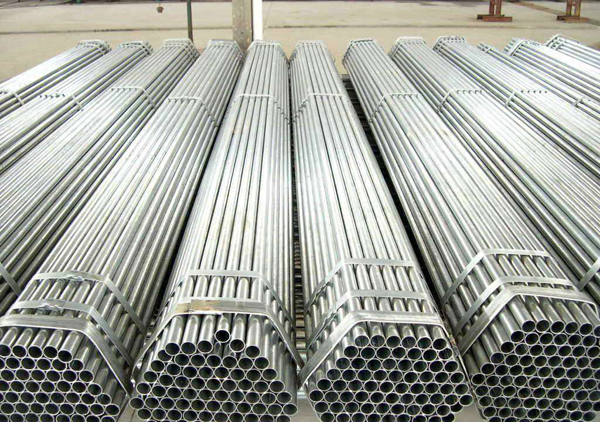Since January this year, many emerging market countries such as Thailand and India have begun to focus on “Made in Chinaâ€. According to rough statistics, China's products have been subject to as many as 12 trade remedy cases from emerging market countries, including anti-dumping or “double-reverse†investigations, as well as affirmative conclusions about the suspected dumping and subsidies of Chinese products.
"The future trade friction should be more and more." Wei Tao, marketing director of Global Market Group, said in an interview that China should actively respond to the lawsuit on the one hand, and accelerate the pace of upgrading on the other hand.
Emerging markets frequently fail
According to the website of the Ministry of Commerce, in the case of ceramic tiles, the Argentine side stated that it imposed an anti-dumping duty of US$12.20 per square meter on Chinese polished tiles and an anti-dumping duty of US$8.77 per square meter on non-polished tiles. The above resolution took effect on January 29 and is valid for 5 years.
Two days ago, on February 19th, the Ministry of Trade and Industry of Malaysia announced the final ruling report on the anti-dumping investigation of the wire rod. The anti-dumping tax rate of Chinese enterprises involved was 0~25.20%. The measure has been implemented since February 20, 2013, with a term of five years.
Zhao Jianglin, a researcher at the Asia-Pacific Institute of the Chinese Academy of Social Sciences, told reporters that emerging market countries have repeatedly initiated trade remedy investigations against China. The main reason is that their industrial level is not as high as China's, their products are not cheap, and they are protected from domestic industries, such as India. Market countries have also frequently attacked China.
Judging from the situation last year and early this year, Argentina and Brazil are countries that have launched a large number of trade remedies against China, and they are all from Latin America. Liquid epoxy resin, ceramic tableware, alkaline refractory materials, seamless carbon steel pipes, table fans and other chemical products and general daily necessities are the hardest hit areas for Chinese products to suffer anti-dumping.
Since September 6, 2011, the Brazilian Foreign Trade Commission has adopted a series of measures to restrict imports, including raising import tariffs on seven manufactured products and anti-dumping on a number of imported products. Many of these trade protection measures directly target Chinese products.
Trade friction or will be more
Although the total trade volume of emerging market countries is not large, it is the "blue ocean" that China's export sector is focusing on. The subsequent trade remedy cases will affect China's exports to these countries.
In Brazil, for example, according to the statistics of the General Administration of Customs, China’s exports to Brazil in 2012 totaled 52.3 billion U.S. dollars, down 0.2% year-on-year.
Li Jian, an expert from the Ministry of Commerce, said that China has become the world's largest exporter and an important trading partner of many emerging market countries. Since most of the emerging market countries have the same economic structure as China, they are mainly engaged in the production of labor-intensive products. They also hope to achieve industrialization through foreign trade. The increase in trade friction against similar products has become a phenomenon in development.
Song Wei, assistant to the director of the Institute of Social Sciences of the Chinese Academy of Social Sciences, believes that under the background of slow global economic recovery, inflationary pressures in emerging market countries have generally increased, fiscal deficits have been high, economic growth has slowed down, and domestic policy adjustment space has decreased. Trade Protection becomes an option. Adopting trade protectionism is intended to divert domestic contradictions and protect domestically affected industries and job markets.
According to the latest data, Brazil’s trade deficit in January this year was 4.035 billion US dollars, the highest since the beginning of 1959.
"Future trade frictions should be more and more." Wei Tao, director of marketing for Global Markets Group, said that in addition to actively responding to the lawsuit, China must speed up the pace of upgrading and extend the "selling products" to build a marketing network and other channels. Avoid trade protection measures in these countries.
In the abrasives industry, there are not many enterprises with foreign trade orders. The trade frictions in various countries will affect the import and export business of abrasives and abrasive products. How to avoid and reduce the losses caused by trade wars is the most important thing for grinding companies to think about. weight.
Galvanized Steel Pipe divided into cold galvanized Steel Pipe, hot dip galvanized steel pipe.Galvanized steel pipe surface has hot-dip galvanized layer or electric galvanized layer.Hot galvanized pipe is molten metal and the iron matrix reacting alloy layer, so that the substrate and coating combination of both. Hot-dip galvanizing is the first steel pickling, in order to remove the steel surface of the iron oxide, after pickling, a mixed aqueous solution tank cleaning by aqueous ammonium chloride or zinc chloride or ammonium chloride and zinc chloride, and then into hot-dip plating bath. HDG has a uniform coating, strong adhesion, long life and other advantages.
Product:Galvanized Steel Pipe
Size:DN10-DN700
Materials: A53-B,A106-B,API5L-B,A106-C,A333-3,A312,ST37/35/52,X42,X52,X60...
Thickness: 2mm-50mm.
Standard:ASTM,JIS,DIN,GOST.......
Crafts: Hot-Rolled, Cold Drawn, Thermal Expansion, ERW, LSAW...
Connection: Welding,Threaded.
Package: Paint, Anti-rust oil, Canvas Packaging, According to customer requirements.
Brand Name: HY
Place of Origin: China (Mainland)
Certification: API 5L.ISO.UKS.SGS.BV
Application: Chemical, Water, Oil and gas, Electricity

Galvanized Steel Pipe
Galvanized Steel Pipe,Galvanized Welded Steel Pipe,Steel Pipe With Galvanized,Black Powder Coated Galvanized Steel Pipe
CANGZHOU HAOYUAN PIPE FITTINGS MFG CO.,LTD , http://www.pipefitting-china.com